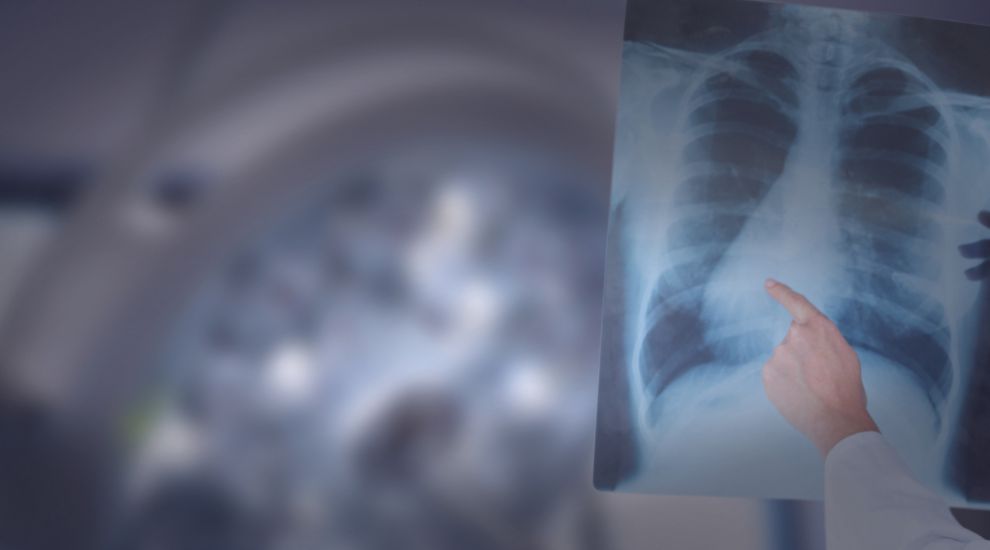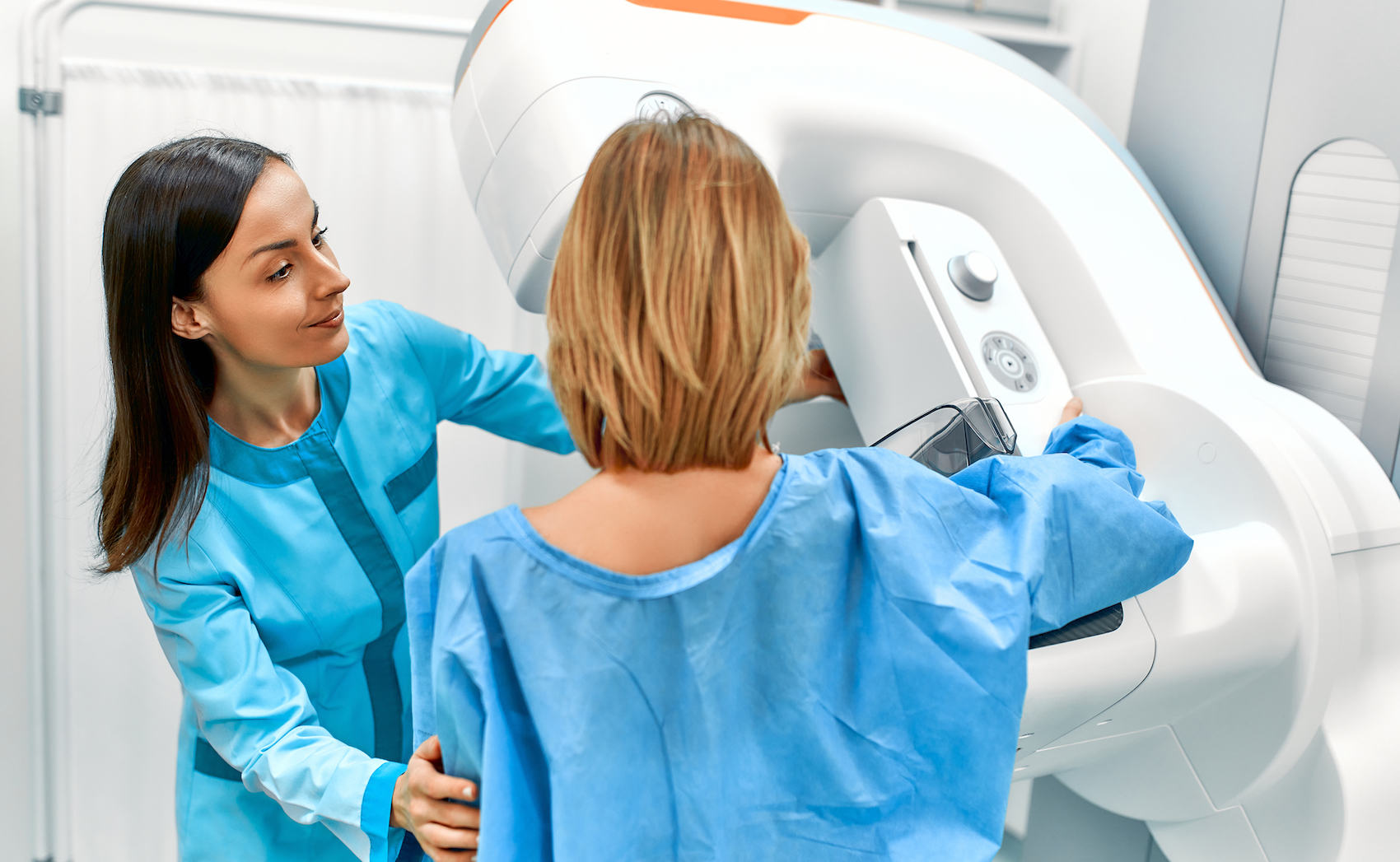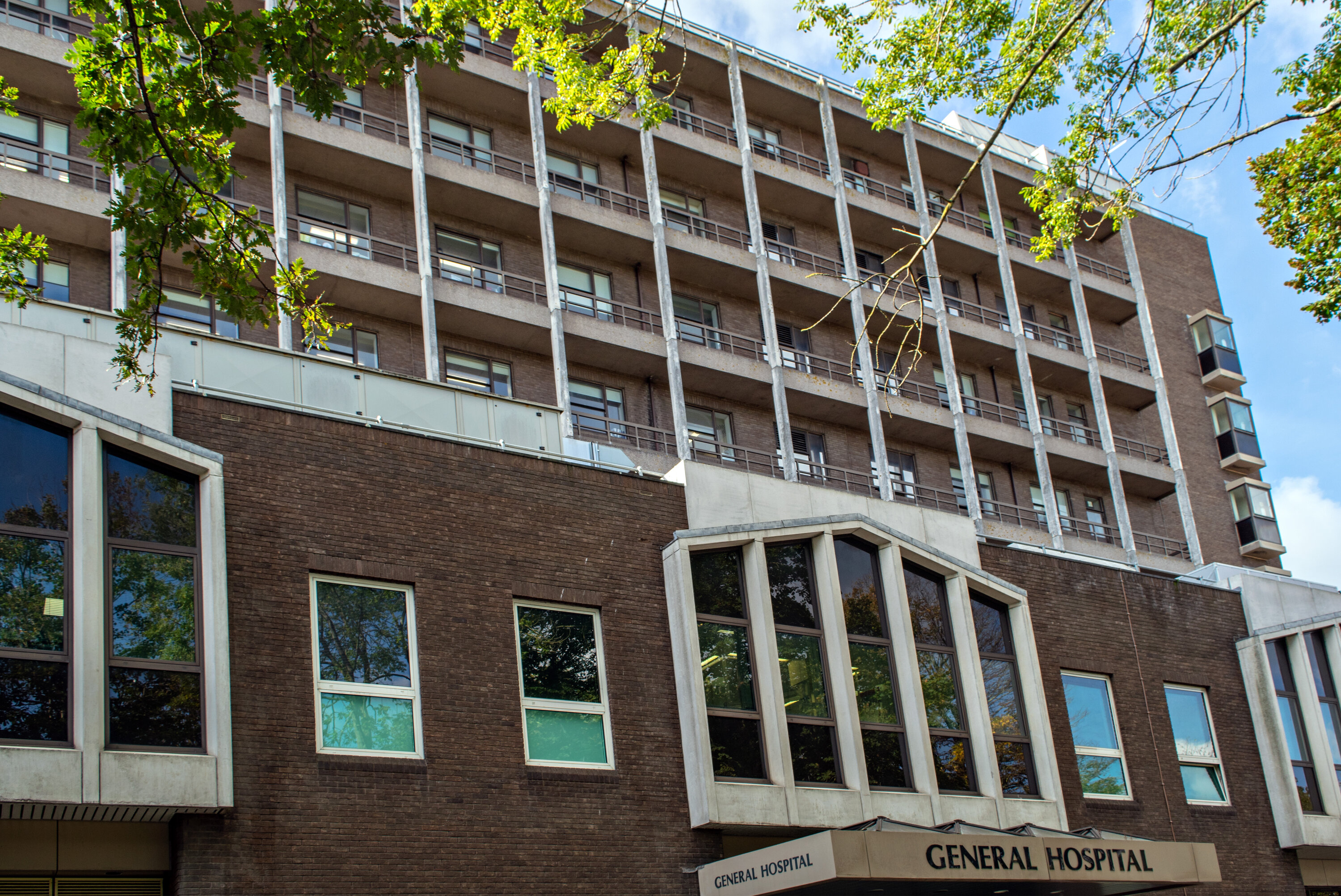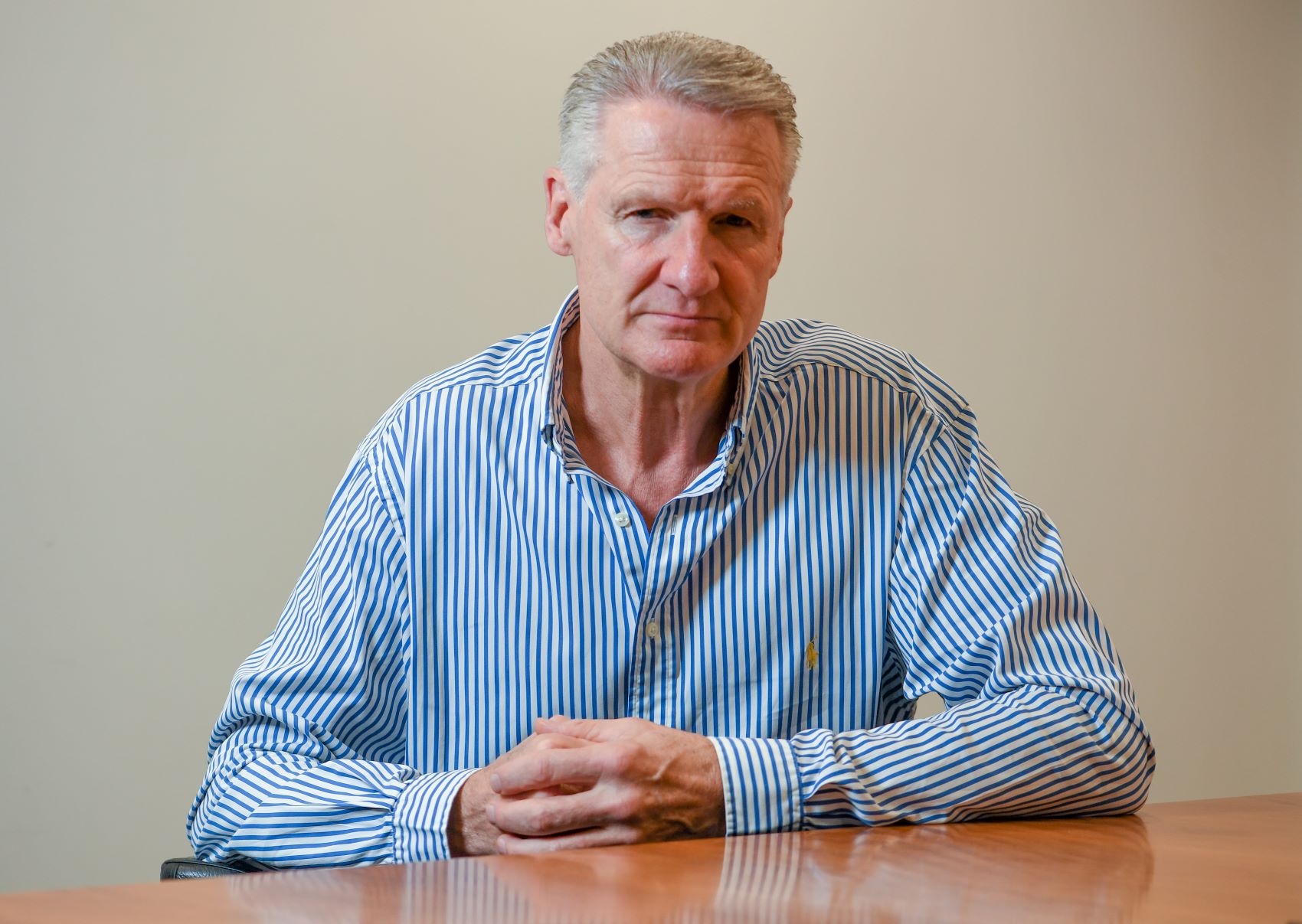


In the heart of a hospital's bustling corridors, there is one group behind the scenes, which quietly performs a job that is pivotal to patient care: radiologists.
These medical detectives delve deep into the body's mysteries through sophisticated imaging technologies. By interpreting X-rays, MRIs, and CT scans, radiologists uncover hidden ailments and provide critical insights that steer life-saving treatments.
Their keen eyes and precise analyses transform shadowy images into clear diagnoses, making them central in the journey from illness to recovery… So, what happens when the department isn’t functioning as it should? When equipment is left in a sorry state? Where governance measures aren't followed? When junior doctors are so fearful of radiologists’ behaviour that they feel unable to request a scan for a patient?
The answer lies in two long-awaited and damning reviews, published for the first time on Thursday evening, which have lifted the lid on a department where “gate-keeping” and elements of a ‘Jersey Way’ have been rife for too long, and patients’ lives have been put at risk.

Pictured: Women were recalled for breast scans after a review was conducted.
It emerged in June that 20 women had to be recalled for a breast cancer screening over fears of a possible misdiagnosis by a radiologist, while a further 14 were told that their diagnosis was initially missed – in some cases delaying their treatment for up to a year. Some women are now considering legal action.
Contact was made after a review of over 2,700 mammograms – a process which followed the findings of a critical report on mammography put together six months ago, which has today been published alongside an even deeper dive into the department by the Royal College of Radiologists, uncovering systemic issues whose ripples will have impacted more than breast screening patients...
Experts were invited to perform a review of Jersey's service in January, and although Health have had a copy of this report since February, it was only published on Thursday afternoon, following significant media and public pressure. The RCR visited the department for two days visiting the department and also used surveys, interviews and sitting in meetings.
It found issues that could affect patients' safety including in "over-gatekeeping" of resources, the lack of a "one-stop" breast clinic where a radiographer and surgeon work together in the same place, and in list planning which could be improved to maximise patients' access to care.
The report found a number of issues with the way the service is delivered, including a system for managing lists that exacerbated long waiting times. They added that funding for a project that reduced MRI waiting times had, by the time of their visit, run out, and waiting times were on their way back up.
The clinical lead and the superintendent radiographer need to work "collaboratively", they added, to avoid wasting resources and time.
And with the current equipment described as old, they added that Health needed to put together a business case to replace machines.
Old equipment had caused delays when it broke down, with CT and MRI scanners having been out of order, but noted that this was usually quickly resolved.
In addition, the "old" digital mammogram unit produced "poor" images.
"It should be replaced as a matter of urgency," the report added, noting that a second one was required to improve capacity.
But, perhaps more concerning than issues with equipment, were the findings relating to those making – or attempting to make – referrals to the equipment it in the hope of securing patients a diagnosis for their ailments.
Radiologists were singled out as needing to make sure their interactions with colleagues outside their department were "civil and professionally appropriate".
And it was those taking their first steps in the medical world, junior doctors, who bore the brunt of bad behaviour.

Pictured: Female junior doctors in particular had been spoken to in an inappropriate way.
There were reports of "rough treatment" towards junior doctors form other departments when they made requests for imaging.
The report added: "There is, of course, an expectation that radiology will vet all requests made to ensure they are clinically appropriate, but the review team was concerned that this appears to be being done without due regard to professional courtesy and civility."
When junior doctors from acute and emergency departments asked radiologists for imaging, the response they got was branded as "inappropriate" by the RCR. Worryingly, they were described as sometimes being "so aggressive" that junior doctors would avoid seeking scans in future.
"More than one" participant said that female junior doctors, in particular, were being spoken to inappropriately.
The survey pointed to a "them and us" culture between radiologists and radiographic staff, and the Clinical Lead and Superintendent Radiographer also needed to improve their relationship which was "not as constructive as it needed to be".
'Jersey Way' analysis still pertinent
And, as with so many criticisms of Health in recent years, reference was made to the 'Jersey Way'.
The term, referenced in the Indepednent Jersey Care Inquiry, is largely used to denote a culture of cover-up and lack of transparency.
It was exactly the phrase Professor Hugo Mascie-Taylor used in his seminal report highlighting an urgent need for culture change in Health because the current situation was risking patient safety.

Pictured: Professor Hugo Mascie-Taylor has also spoken of a 'Jersey Way' in Health.
It was a term the Royal College of Radiologists also reached for as they reviewed the Radiology Department and its own approach to governance.
Among other things, the RCR said that it was not clear that the clinical lead is responsible when something goes wrong in the department.
The review itself wasn't actually the first time concerns had been raised.
In fact, staff had done so – directly with the Clinical Lead, but nothing was done.
The report said there was "an urgent need" to review the way that people can raise concerns and how these are responded to.
The RCR added: "It was clear from the conversations that the review team engaged in over the course of the review visit that the governance structures that are in place to deal with any concerns promptly and effectively have not been utilised."
Reviewing the process for raising and responding to staff concerns was among the RCR's six most urgent recommendations out of 15. Others deemed as being 'high urgency' included making business cases for new and additional equipment, strengthening the Clinical Lead role, and clarifying plans for interventional radiology in the island.
The separate, equally damning report by the British Society of Breast Radiology was published alongside the RCR's.
Describing damage to trust in Jersey's mammography unit is "irredeemable", the report gave an insight into how the breast screening concerns were handled when raised.
It confirmed that one radiologist in particular who had caused concern in the department had been suspended from conducting mammograms and breast ultrasounds in September 2023 – despite colleagues having regularly reviewed his work in the three years prior.
Hospital leadership then asked for a new report, by the British Society of Breast Radiologists.
This found that the radiologist, who has not been named by Health, should be banned from screen reading, surveillance, family history mammography reading, screening assessment clinics or wire localisations.
There was "no clear evidence", they added, that they should be stopped from doing "symptomatic breast work", adding that if the radiologist was allowed to go ahead with this, they should be "closely audited".
They added that there should be an "urgent" assessment of the quality of the screening programme in general, and they recommended the introduction of one-stop breast clinics where the surgeon and radiologist work together.
Six cases were identified where either an individual or the multidisciplinary team as a whole were responsible for a "significant delay in diagnosis", and that these warranted a "duty of candour discussion", where Health has a responsibility to be open and honest with patients about shortcomings.
Despite the BSBR initially deciding that patients wouldn't need to be recalled as they were due to be seen at follow-up appointments anyway, Health decided to recall 20 patients as they had up to five months left to wait. Results for these patients are due to be published at the end of July.
In its review, the BSBR described how the mammography unit was plagued with "a lack of action" which may have been due to "close interpersonal relationships" between staff, which then led to performance issues not being addressed.
"The delay in action has also had an impact on the radiologist and the general functioning of the Unit, as the loss of confidence in him and governance of the unit could have been minimised if the issues had been addressed promptly. We believe this is now irredeemable.
"The above scenario appears to be symptomatic of a wider lack of management and inadequate communication.”
As a result of the report, Health said it would need to support its clinical lead, send them on an off-island leadership course, and link them to "a suitable UK unit" - an idea Health has explored often to help Jersey-based experts who are otherwise the only specialist in their field in the island.
The reports have been published just one week after a trio of senior Health experts who had been charged with overseeing and helping to transform the Health Department gave a damning post-mortem of their experience locally, describing huge resistance to change and following generally accepted guidelines at the senior levels of the Health service. Some went so far as to say they would rather go elsewhere than seek treatment in Jersey.
Health's Chief Officer, Chris Bown, described the latest reports as "sobering". He was clear that the breakdown in interpersonal relationships at the heart of many of teh department's issues needed healing.

Pictured: "It is clear we need to reset the relationship," said Chris Bown, Chief Officer.
"It is clear we need to reset the relationship between different professional groups in this area and engender a much stronger culture of collaboration and professional respect. I am determined we will do this," Mr Bown said.
“In its report the Royal College commends HCS for commissioning this review which it says is evidence of our openness to learning from external perspectives. I welcome this comment. We are certainly trying to be completely open and transparent in everything we do. This may fuel the impression that services in HCS need significant improvement, but openness and transparency are essential if we are to enhance services in the future.”
Health Minister Tom Binet said his goal was to "get Health out of the headlines" within a year.
While he said he was glad the reports had been published, he was again critical of the comments made by Health experts at Scrutiny last week, which he said had caused "unnecessary controversy".

Pictured: The Health Minister said he was glad the reports had now been published.
“This has been an organisation that hadn’t kept pace with where it should have been, and now we’re going through a very major job of bringing everything up to date – and when you lift up stones, it will be uncomfortable.
“I’m much more comfortable than I was at the start of this process, and I genuinely believe I have better support from management than when it began.”
Much like the damning Rheumatology Department review, which revealed that hundreds of islanders had been wrongly prescribed strong drugs, the reviews only came about thanks to the bravery of staff who continued to pursue their concerns, despite the difficulties they encountered – one in particular was instrumental.
“This case indicates that our Freedom To Speak Up policy is working well and we commend the member of staff who raised this issue with us," Deputy Medical Director Simon West said.
"It’s very important that healthcare staff feel free to speak up internally when they see something they think is not quite right. And when somebody raises questions about the practice of a colleague it is vitally important these matters are taken seriously by HCS, fully considered, and thoroughly investigated. That is exactly what has happened in this case.”
FOCUS: “You need to accept you have a problem”
Health could face lawsuit over radiology misdiagnosis fears
Panel "should have been made aware" of radiology scandal
Tip of the iceberg? “Other issues” in radiology under investigation
MRI scanner left out of action after routine service
IN-DEPTH: “How much evidence does Jersey's health department need?"
Comments
Comments on this story express the views of the commentator only, not Bailiwick Publishing. We are unable to guarantee the accuracy of any of those comments.